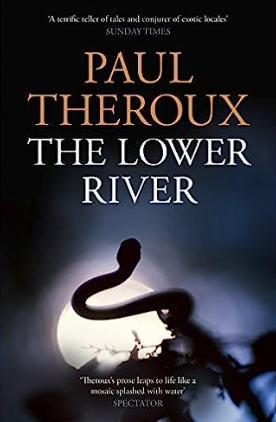

Paul Theroux is one of those authors you should have probably read but only got round to because of the continued insistence of an older, respected friend. It’s possible I may have come a little late to the party.
In a writing career dating back to 1967, ‘The Lower River’, published in 2012, marks Theroux’s twenty-sixth novel. At its heart is Ellis Hock’s journey from Medford Square, Massachusetts to Malabo village in Malawi’s southern province. As a young man, Ellis spent a few years forging a (contended) life there before the latter everydayness of running a business, marriage, and fatherhood had yet to define his existence. He taught in Malabo, helped build a school there and forged relationships with the locals, most notably a female teacher from the local Sena people. That time in a faraway land trails Ellis throughout the rest of his life back in the US. It becomes an increasingly poignant reminder of happier times as the pillars of his life erode. After many decades of marriage, his wife divorces him (after finding several innocuous emails to many women on an upgraded mobile phone); the decline of the high street impacts the sustainability of his business, and his only daughter is more interested in handouts than nurturing a relationship with her aging, and distant, father. Becoming old is not being kind to Ellis Hock.
With little of consequence remaining in his life, including platonic relationships, Ellis returns to his past, hoping to find a final purpose and meaning. Instead, by revisiting Malabo, further affirmation comes, after the initial joy of familiarity, that his existence is of little consequence to those around him; except for any possible treasure his transfer from one village to another may warrant. Ellis bears the mark of the Great White Saviour, who everyone, except two women - the grown-old and heavy female teacher from his past and her young female relative—do not care a jot about.
As Ellis unravels in his months of torment — initially as a welcomed visitor that then morphs to internment—is where we encounter some of Theroux’s least appealing attitudes toward those surrounding our protagonist; despite some excellent prose. Theroux is undoubtedly a talent, as his many accolades can attest. However, it feels in Ellis we discover some deep-seated prejudices of his creator - after all, Theroux was in his seventies when penning this work. The story contains elements of framing Africa as the ‘Dark Continent’; the lost land needing salvation from itself. Its inhabitants are grasping, ignorant, uncaring (toward Ellis) or, even worse, indifferent to his existence. As the narrative unfolds, the latter point takes on greater poignancy. Ellis’ despondency increases because he cannot impact change on the Sena people. However, this failure is not framed as any lack on the part of Ellis. Instead, the locals are unable or unwilling to oblige themselves with what Ellis offers - upliftment, for no better reason than his presence among them.
These colonialist nudges happen in subtle ways; easily missed, if too engrossed in the author’s captivating prose. Theroux pays too much attention to the physical condition of the inhabitants of the improvised village. He constantly reminds us how ‘skinny’ they are and the state of their general dishevelment. Alongside this, Ellis is of the mind that his maid, younger by at least forty years, would willingly accept his advances as her continued life in the village offers no prospects.
‘The Lower River’ is not an awful book, but as my mature-aged friend pointed out, if starting out with the work of Paul Theroux, this is likely not the most accomplished to begin with.